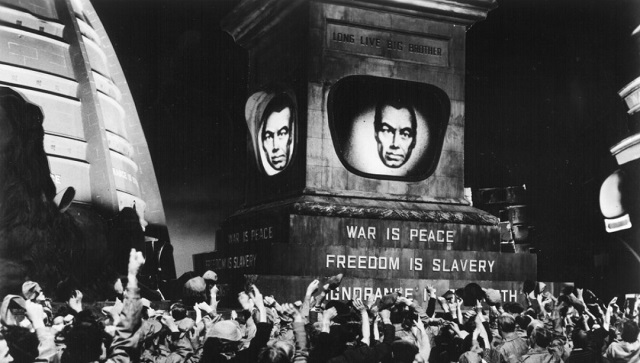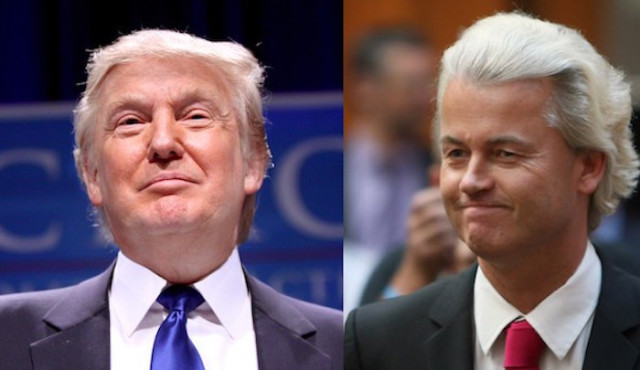WATCH: George Orwell’s Movie ‘1984’ to Understand What is Happening In America Today!

thetrendsvideos published the full version of a film based upon George Orwell’s book “1984” with the following commentary:
1984 is a 1956 film loosely based on the novel of the same name by George Orwell. This is the first cinema rendition of the story, directed by Michael Anderson, and starring Edmond O’Brien. Also starring are Donald Pleasence, Jan Sterling, and Michael Redgrave. Pleasence also appeared in the 1954 television version of the film, playing the character of Syme, which in the film was amalgamated with that of Parsons. O’Brien, the antagonist, was renamed “O’Connor,” possibly to avoid confusion with lead actor Edmond O’Brien.
After the customary distributor agreement expired, the film was withdrawn from the theatrical and TV distribution channels by Orwell’s estate and was not legally obtainable for many years Eric Arthur Blair (25 June 1903 — 21 January 1950), known by his pen name George Orwell, was an English novelist, essayist, journalist and critic. His work is marked by lucid prose, awareness of social injustice, opposition to totalitarianism and commitment to democratic socialism.
Commonly ranked as one of the most influential English writers of the 20th century and as one of the most important chroniclers of English culture of his generation, Orwell wrote literary criticism, poetry, fiction and polemical journalism. He is best known for the dystopian novel Nineteen Eighty-Four (1949) and the allegorical novella Animal Farm (1945), which together (as of 2009) have sold more copies than any two books by any other 20th-century author.
His book Homage to Catalonia (1938), an account of his experiences in the Spanish Civil War, is widely acclaimed, as are his numerous essays on politics, literature, language, and culture. In 2008, The Times ranked him second on a list of “The 50 greatest British writers since 1945”.[6] Orwell’s work continues to influence popular and political culture, and the term Orwellian — descriptive of totalitarian or authoritarian social practices — has entered the language together with several of his neologisms, including Cold War, Big Brother, thought police, Room 101, doublethink, and thoughtcrime.
©All rights reserved.

